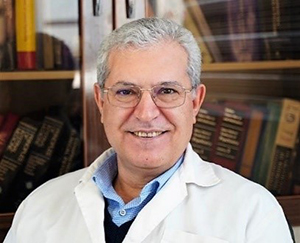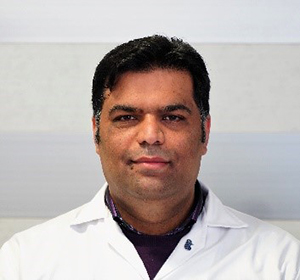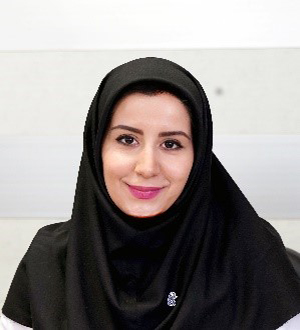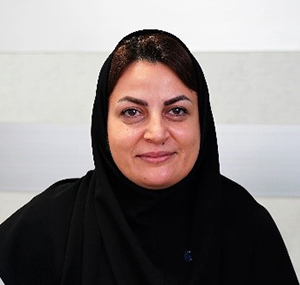روانپزشکی سالمندان

|
|
Geriatric Psychiatry Fellowship |
||||||||||||||||||||
FACULTY
|
Introduction |
|
|
||||||||||||||||||
|
|
|
||||||||||||||||||||
|
The Iran University of Medical Sciences, School of Medicine, Department of Psychiatry offers an 18-month full-time fellowship training program in Geriatric Psychiatry. This fellowship will include clinical, educational, and research components and is intended for psychiatrists interested in a clinical or academic career. Our faculty are committed to our fellows' intellectual growth and emotional prosperity. Along with supervision of clinical work, comprehensive didactic seminars, case conferences, grand rounds, and journal clubs add to the rich learning process. Teaching and research will also be an essential part of the educational experience. Fellows will actively participate in the program's planning through regular evaluations of the program, its trainees, and its faculty. |
|||||||||||||||||||||
|
|
|
||||||||||||||||||||
History |
|
|
|||||||||||||||||||
|
|
|
||||||||||||||||||||
|
In 2007, with the approval of the four-year psychiatric course curriculum, a two-month rotation of geriatric psychiatry was planned for these four years. There are still no complementary specialized courses in geriatric psychiatry in various universities despite many efforts. Due to the growing need to maintain and promote the mental health of the elderly, Iran University of Medical Sciences, for the first time in Iran, using the latest information and valuable experiences of senior psychiatric fellowship training centers in the world, has developed a geriatric psychiatry fellowship training program. We hope to see the growth of pre-service to the elderly in the community and the significant improvement of mental health indicators in this group. |
|
||||||||||||||||||||
|
|
|
||||||||||||||||||||
Educational Goals |
|
|
|||||||||||||||||||
|
|
|
||||||||||||||||||||
|
The primary goal of this fellowship program is to train geriatric psychiatrists who will provide practical and comprehensive psychiatric medical care for elderly patients suffering from psychiatric and neuropsychiatric disorders. They will also learn effective communication with elderly patients and demonstrate respect, compassion, and integrity while providing care. Fellows will be able to identify the cultural aspects and ethnic variations that play a role in the treatments and their outcomes. They will also be able to recognize and manage medical and psychiatric comorbid disorders in the inpatient and outpatient settings. The training program will help the fellows learn how to formulate a broad differential diagnosis and develop a comprehensive geriatric psychiatry treatment plan based on the biopsychosocial formulation and input from the multidisciplinary team, and finally monitor the treatment plan. The fellow will have the opportunity to practice other behavioral modification strategies used mainly in patients with neurocognitive disorders, develop knowledge about appropriate indications and application of electroconvulsive therapy (ECT), and Transcranial Magnetic Stimulation (TMS), and other non-pharmacological treatment options in the elderly. The geriatric psychiatry fellowship program will train the psychiatrist to identify the ethical and legal issues pertinent to geriatric psychiatry, including decisional capacity, guardianship, informed consent, end-of-life issues, and palliative and hospice care. Critical appraisal of the literature regarding methodology, biostatistics, research design, and decision analysis, developing skills in accessing the literature electronically, and then presenting the gathered data in teaching format will also be a core part of the training.
The Core curriculum for this fellowship program will include these six core competencies. • Patient care • Medical Knowledge • Interpersonal and Communication Skills • Practice-based learning and improvement • Systems-based practice • Professionalism |
|
||||||||||||||||||||
|
|
|
||||||||||||||||||||
rotations |
|
|
|||||||||||||||||||
|
|
|
||||||||||||||||||||
|
Our 18-month curriculum gives the fellows the opportunity to rotate on multiple services at Rasool Akram Hospital, Firoozgar Hospital, and the Brain and Cognition Clinic. Many of the current rotations (subject to change) include: • Outpatient Geriatric Psychiatry • Inpatient Geriatric Psychiatry • Inpatient and Outpatient Neurology • Physical Medicine and Rehabilitation • Radiology • Forensic Medicine • Participation in the national programs of the Ministry of Health and Medical Education in the field of mental health of the elderly Fellows participate in dedicated case conferences and didactics. |
|
||||||||||||||||||||
|
|
|
||||||||||||||||||||



